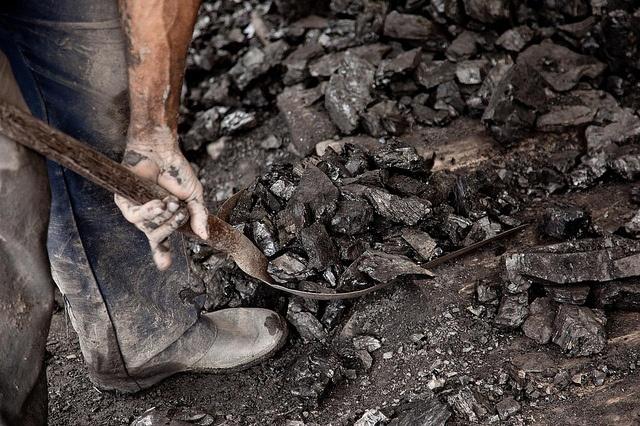
By Paul Klein
“They live thinking the future is this afternoon,” said Juan Pablo Duque in describing the lives of artisanal and small-scale miners in Colombia.
Duque, senior vice president of Equilibria and formerly the CEO of Four Points Mining, has seen how artisanal and small-scale miners live and work first-hand. According to Duque, there are virtually no safety procedures, working conditions are extremely dangerous and serious accidents are frequent. “It’s very often that you hear about a mine that crashed down and killed many miners, and it was an informal mine," he says. “It also happens in South Africa. It happens in Nicaragua and in many other parts of the world.”
Globally, approximately 100 million people – including miners and their families – depend on illegal and informal mining, compared with about 7 million in large-scale industrial mining, according to the 2002 Global Report on Artisanal and Small-Scale Mining produced by the International Institute for Environment and Development
Tragedies such as the collapse of the Rana Plaza factory in Bangladesh have put a spotlight on unacceptable working conditions for garment workers in developing countries. In response, initiatives such as the Bangladesh Accord for Fire and Building Safety have the potential to improve the lives of workers and their families. However, the dangerous conditions in which artisanal and small-scale miners work remains largely invisible outside of the mining industry.
"Many stakeholders, but no winners"
In Colombia, it is estimated that illegal or informal miners are responsible for mining more than 80 percent of the gold produced in the country. Local sources believe that about 300,000 miners and their families are at high risk because of the dangerous conditions in which they work. For example, artisanal and small-scale miners can only purchase explosives from the military. “So they have to buy on the black market, or they build an explosive that is called ‘polvo loco.’ (That means crazy dust in English),” said Duque. The miners use mercury to capture the gold from the ore with their hands. Needless to say, mercury is highly toxic. Whole families are often involved, and child labor is not uncommon in many operations. Workers who are injured and unable to work lose their income entirely, leaving their families without money to buy food and other basic necessities.
During the time Duque was CEO of Four Points Mining, a company that operates in the municipality of Zaragoza in the Colombian department of Antioquia, he learned how complex the situation is and realized that there are many stakeholders but no winners.
First, he found that miners and their families who had no rights to the mining concession were illegally exploiting most of the mines and working in dangerous conditions. He also learned that these miners were very comfortable operating illegally on land held by concession-owners that is actually the property of a third party. Further, even though the concession-owners were not exploiting their own property, they were responsible to the state for environmental damage caused by the illegal miners. Finally, governments in Colombia are attempting to reduce illegal and informal mining by preventing foundries from purchasing from miners who don’t have official permits, and the police are confiscating gold from illegal and informal miners. As a result, foundries in Antioquia are going out of business because their access to gold from miners without permits is being significantly reduced.
A sustainable solution
Duque and his colleagues at Equilibria have envisioned a new approach that is informed by his in-depth understanding of the ways in which all the stakeholders are affected. He believes that an inclusive, cooperative model would leverage what each stakeholder brings to the table and deliver more efficient and sustainable operations. The increased profits could, in part, fund new social programs for miners and their families.
He believes the first step is to identify miners who want safer working conditions for themselves and their families and would prefer to operate legally. Next, the mothers and wives of miners need to be engaged. “Look, the legal system has better safety conditions, so you cannot be afraid anymore that your husband is at a high risk because now we can control it,” said Duque. “If he has an accident or is sick, you won’t have to worry about receiving money, because everyone will contribute to a cooperative system of social security.”
The new model brings together informal/illegal miners, the private sector, concession holders, foundries and the government to find sustainable solutions that harness the best technology, skills and capacities from all stakeholders. This approach would provide informal and illegal miners and mine developers with legal rights, social security and improved safety. The results would also include more jobs and viable employment alternatives for women, skills training for miners through partnerships with local colleges and educational scholarships for children of the miners. Concession holders would benefit from more cash flow, control over their property and reduced environmental damage. Foundries would have access to more legally mined gold and corruption would be reduced because bribes to officials would no longer be necessary.
By making it a priority to understand the needs of miners and their families, local communities, businesses and the government, Duque has build a high degree of trust among stakeholders that have not shared much common ground. His ideas have the potential to transform mining in Colombia and perhaps in other countries as well.
“It started as a strategy for security,” said Duque of his journey to find a better approach to mining in Colombia. “Then, it turned into a passion.”
Image credits: Flickr/Alejandro Arango (1 & 2)
Paul Klein is the President of Impakt, a B Corp based in Toronto and Bogotá that creates opportunities for corporations to benefit from being socially responsible.
TriplePundit has published articles from over 1000 contributors. If you'd like to be a guest author, please get in touch!














